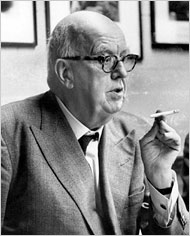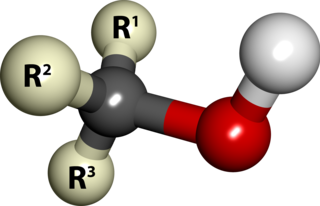Spy fiction, a genre of literature involving espionage as an important context or plot device, emerged in the early twentieth century, inspired by rivalries and intrigues between the major powers, and the establishment of modern intelligence agencies. It was given new impetus by the development of fascism and communism in the lead-up to World War II, continued to develop during the Cold War, and received a fresh impetus from the emergence of rogue states, international criminal organizations, global terrorist networks, maritime piracy and technological sabotage and espionage as potent threats to Western societies.

Henry Graham Greene, better known by his pen name Graham Greene, was an English novelist regarded by many as one of the greatest writers of the 20th century. Combining literary acclaim with widespread popularity, Greene acquired a reputation early in his lifetime as a major writer, both of serious Catholic novels, and of thrillers. He was shortlisted, in 1966 and 1967, for the Nobel Prize for Literature. Through 67 years of writings, which included over 25 novels, he explored the ambivalent moral and political issues of the modern world, often through a Catholic perspective.

Charles Percy Snow, Baron Snow, CBE was a novelist and English physical chemist who also served in several important positions in the British Civil Service and briefly in the UK government. He is best known for his series of novels known collectively as Strangers and Brothers, and for The Two Cultures, a 1959 lecture in which he laments the gulf between scientists and "literary intellectuals".

Christopher William Bradshaw Isherwood was an English-American novelist. His best-known works include The Berlin Stories (1935–39), two semi-autobiographical novellas inspired by Isherwood's time in Weimar Republic Germany. These enhanced his postwar reputation when they were adapted first into the play I Am a Camera (1951), then the 1955 film of the same name, I am a Camera; much later (1966) into the bravura stage musical Cabaret which was acclaimed on Broadway, and Bob Fosse's inventive re-creation for the film Cabaret (1972). His novel A Single Man was published in 1964 and adapted into the film of the same name in 2009.

David John Moore Cornwell, better known by the pen name John le Carré, is a British author of espionage novels. During the 1950s and 1960s, he worked for both the Security Service (MI5) and the Secret Intelligence Service (MI6). His third novel, The Spy Who Came in from the Cold (1963), became an international best-seller and remains one of his best-known works. Following the success of this novel, he left MI6 to become a full-time author. Several of his books have been adapted for film and television. In 2011, he was awarded the Goethe Medal.

James Lafayette Dickey was an American poet and novelist. He was appointed the eighteenth United States Poet Laureate in 1966. He also received the Order of the South award. Dickey was best known for his novel Deliverance (1970) which was adapted into an acclaimed film of the same name.
Christopher Logue, CBE was an English poet associated with the British Poetry Revival, and a pacifist.
A comic novel is a novel-length work of humorous fiction. Many well-known authors have written comic novels, including P. G. Wodehouse, Henry Fielding, Mark Twain, and John Kennedy Toole.

Winfried Georg Sebald, known as W. G. Sebald or Max Sebald, was a German writer and academic. At the time of his death at the age of 57, he was being cited by many literary critics as one of the greatest living authors and had been tipped as a possible future winner of the Nobel Prize in Literature. In a 2007 interview, Horace Engdahl, former secretary of the Swedish Academy, mentioned Sebald, Ryszard Kapuściński and Jacques Derrida as three recently deceased writers who would have been worthy laureates.
Thomas Louis Berger was an American novelist. Probably best known for his picaresque novel Little Big Man and the subsequent film by Arthur Penn, Berger explored and manipulated many genres of fiction throughout his career, including the crime novel, the hard-boiled detective story, science fiction, the utopian novel, plus re-workings of classical mythology, Arthurian legend, and the survival adventure. Berger's biting wit led many reviewers to refer to him as a satirist or "comic" novelist, descriptions he preferred to reject. His admirers often bemoaned that his talent and achievement were under-appreciated, in view of his versatility across many forms of fiction, his precise use of language, and his probing intelligence.
A war novel is a novel in which the primary action takes place on a battlefield, or in a civilian setting, where the characters are either preoccupied with the preparations for, suffering the effects of, or recovering from war. Many war novels are historical novels.

Lisey's Story is a novel by American writer Stephen King that combines the elements of psychological horror and romance. It was released on October 24, 2006, and was nominated for the World Fantasy Award in 2007. An early excerpt from the novel, "Lisey and the Madman", was published in McSweeney’s Enchanted Chamber of Astonishing Stories (2004), and was nominated for the 2004 Bram Stoker Award for Best Long Fiction. King stated that this is his favorite of the novels he has written.
Christopher John Koch AO was an Australian novelist, known for his 1978 novel The Year of Living Dangerously, which was adapted into an award-winning film. He twice won the Miles Franklin Award. In 1995, he was made an Officer of the Order of Australia for his contribution to Australian literature, and was awarded an honorary Doctor of Letters from his alma mater, the University of Tasmania, in 1990.
John David Caute is a British author, novelist, playwright, historian and journalist.
James Kennaway was a Scottish novelist and screenwriter. He was born in Auchterarder in Perthshire and attended Glenalmond College.
Landon is a personal name of English origin that means "long hill". It is a variant of Langdon. Landon became popular in the United States in the 1990s, and by 2010 had become the 32nd most popular name for boys. Landon may refer to:

The Miernik Dossier, published by the Saturday Review Press in 1973, was the first of seven novels by the American novelist Charles McCarry featuring an American intelligence agent named Paul Christopher. Set in 1959 in Europe and Africa during the days of the Cold War, it is narrated in the form of reports, overheard conversations, and various documents from a multitude of sources of different nationalities, supposedly giving the reader an authentic picture of what an actual intelligence operation might be like. McCarry had previously been an undercover operative for the Central Intelligence Agency for nine years, and the book was hailed for its apparent authenticity and realistic depiction of tradecraft. It received excellent reviews, and instantly established McCarry's reputation as one of the foremost American novelists of espionage. Later books by McCarry, nine more in all, expanded from focusing solely on Christopher into what might be considered a chronicle of the Christopher universe: two novels feature his cousins, the Hubbards, and in many of the other Christopher novels his father, mother, one-time wife, and daughter play important and recurring roles. Also in this universe is a 1988 historical novel, The Bride of the Wilderness, about Christopher's ancestors in 17th-century England, France, and Massachusetts. Like all of McCarry's books, this one displays "an almost Jamesian awareness of [its] European locale, the special authenticity of a loving expatriate writing of an adopted foreign land."

Walter Baxter was an English novelist, best known for writing two controversial novels. His first novel received very positive reviews. He was prosecuted on obscenity charges after the publication of his second novel, but was acquitted after two trials. He was also a successful restaurateur.
John Kruse (1921–2004) was an English film and television screenwriter, director and novelist. He is mostly remembered for his work on ITC classic TV series The Saint, as well as several films of the franchise, and as the author of the best-selling novel Red Omega.
















